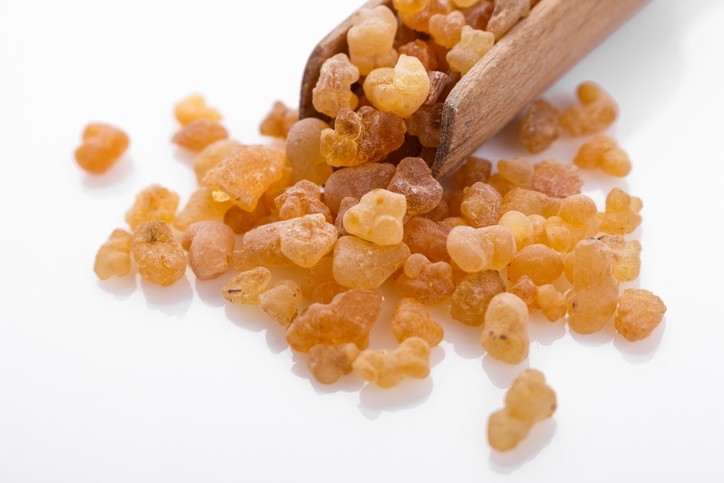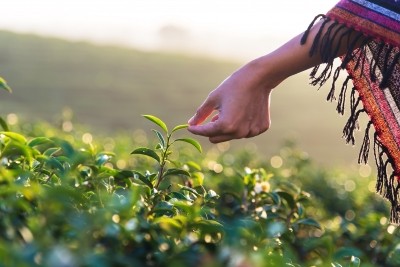Too much of a good thing? Demand for botanicals puts increasing pressure on supplies

Sales of dietary supplements continue to ramp up in the United States and in other parts of the globe. The size of the US market now stands at about $43 billion, up from about $30 billion less than 10 years ago.
Demand increasing
The botanical end of the supplement market is growing, too. According the American Botanical Council, sales of herbal dietary supplements topped $8 billion in 2017 and grew at an 8.5% year over year pace. Formulas based on Ayurvedic herbs helped fuel the rise, the organization said. ABC’s market report for 2018 is due out in September, and it would be a surprise if the category did not show another year of strong growth.
Stefan Gafner, PhD, ABC’s chief scientific officer, said pressure on supplies of botanical materials is an ongoing concern. Dealing with the vicissitudes of weather is part of the business, he said.
“I look at the question from a sustainability point of view,” Gafner told NutraIngredients-USA. “There are examples of supply issues such as with saw palmetto, where you have a weather impact. The last three years the harvest has been poor.”
“In the case where the supply is short and the plants are disappearing in the wild, that is a bigger concern,” he said.
Case of boswellia
Boswellia, which is among the most popular of Ayurvedic ingredients, has benefited and suffered from the ongoing interest in herbal supplements. Boswellia is an ingredient that starts as a resin collected from the Boswellia serrata tree, native to certain parts of India.
The modern ingredient is associated with anti inflammatory benefits. It is also one of the oldest known herbal ingredients. It forms one of the sources of frankincense, an aromatic substance which has been in trade since Biblical times.
The recent increasing popularity of boswellia is threatening supplies. A paper written by Thomas Brendler, PhD, showed that harvest pressure is threatening populations of the tree.
The resin exudate was originally gathered from the bark of trees. To boost production, trees are often tapped in a manner similar to how maple sap is harvested in North America. Scoring the bark too much damages and weakens the trees, which are slow growers.
Brendler also found that competition from grazing in heavily populated India was also a concern. The cows eat the saplings of the trees, meaning the future supply is clouded.
Gafner said there is a similar supply issue with guggul, another Ayurvedic ingredient that starts as a tree resin exudate that comes from the Commiphora wightii plant, which grows as a large shrub or small tree primarily in northern India. The plant has been over harvested and has been placed on the IUCN Red List
Gafner said as supplies dwindle, the urge to adulterate the materials expands. In the case of boswellia, some harvesters drop the resin balls on the ground to add some dust to the total weight. And the resins from some other trees have been added to the mix, he said.
Rhodiola supply concerns
Another increasingly popular ingredient that has come under supply constraints recently is rhodiola. This ingredient is extracted from the roots of a shrub, Rhodiola rosea, that grows in many places in the Northern Hemisphere, but the primary collecting region is the Altai Mountains of China, Mongolia and southern Siberia.
China recently restricted harvest of the plant, and Gafner said he has heard off the record that some Chinese harvesters were crossing the border illegally into Russia to obtain material.
Devin Stagg, chief operating officer of ingredient supplier PLT, said the issue points to the need to develop long standing relationships for some of the botanical ingredients whose supply situations are tenuous. PLT has had its RhodioLife ingredient on the market for a number of years.
The supply issue for rhodiola is complicated by the fact that no one has been able to cultivate the plant and arrive at a material that has a similar bioactives profile to the wild plants, Stagg said. Add to that the fact that the plants must be between four and five years old to have enough of the active constituents to be an acceptable raw material, he said.
“What we saw with rhodiola was global growing awareness and interest. But then concurrently with that steady growth there was a significant shortage of quality material starting in 2017. We also started to see that the bioactivity of the roots was slowly trending down over time so that you’d need more material to produce the same standardized extract. Those factors combined to drive the cost of quality material up quite aggressively,” he said.
Long term supply relationships are key
Stagg said PLT has a long standing relationship with Nektium Pharma, a Spanish company that has built partnerships with local gatherers in southern Siberia.
“Both PLT and Nektium have made a conscious effort to do this right,” Stagg said. “Sustainability is a huge component.”
“Our partner operates under a specific collection plan under good agricultural practices. They take care to harvest only the really mature plants, so that they make sure that in five to 10 years we can still meet the needs of our customers,” he said.
Sustainable Herbs Program
Gafner said that while there are ongoing concerns, no alarm bells sounding at the moment in terms of the imminent extinction of species important to the botanical trade. But that possibility can’t be discounted, which is why he suggested companies might want to help sponsor The Sustainable Herb Program.
ABC has partnered on the project, which is the brainchild of Ann Armbrecht, PhD. The program grew out of her doctoral work, which culminated in the award-winning documentary film Numen: The Nature of Plants.
















